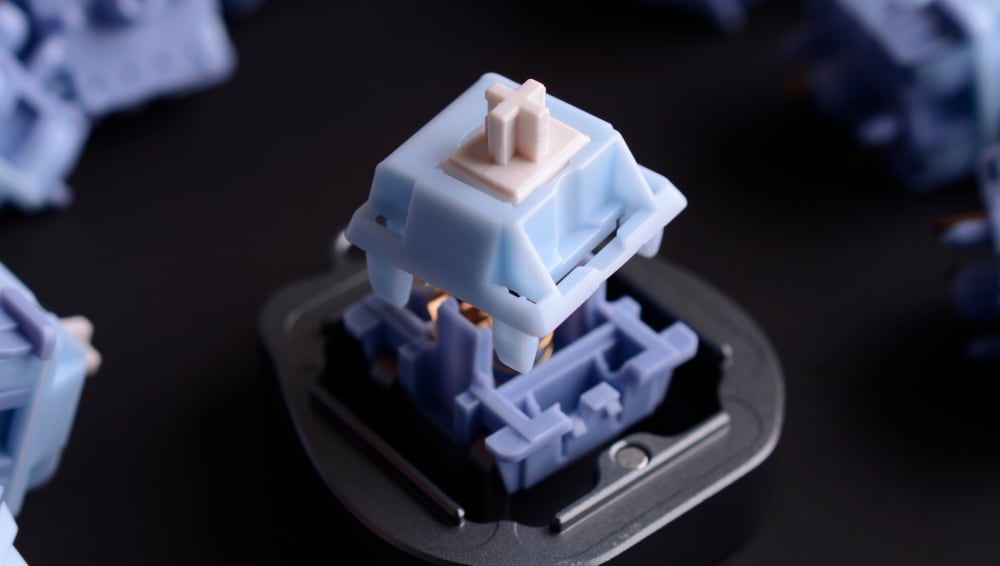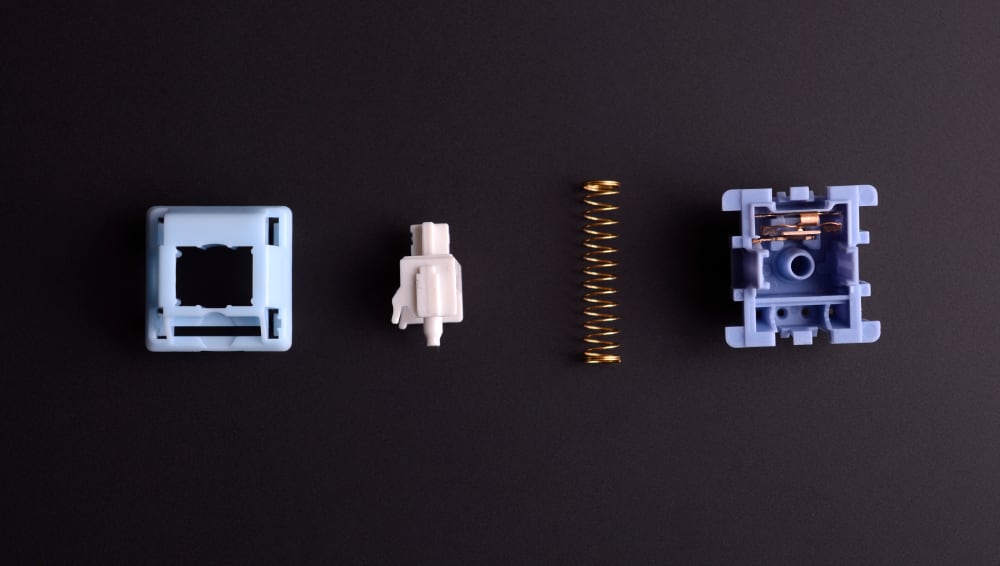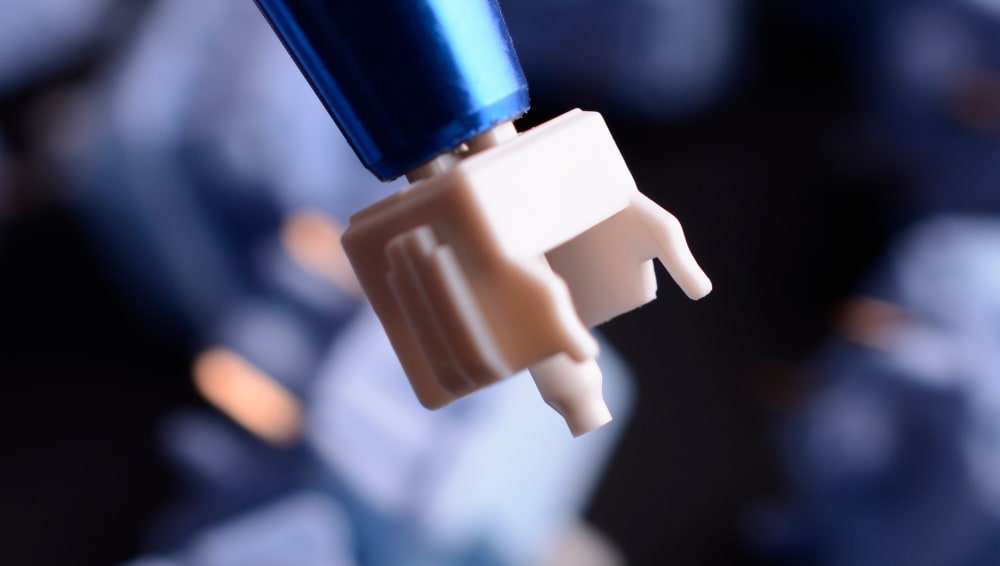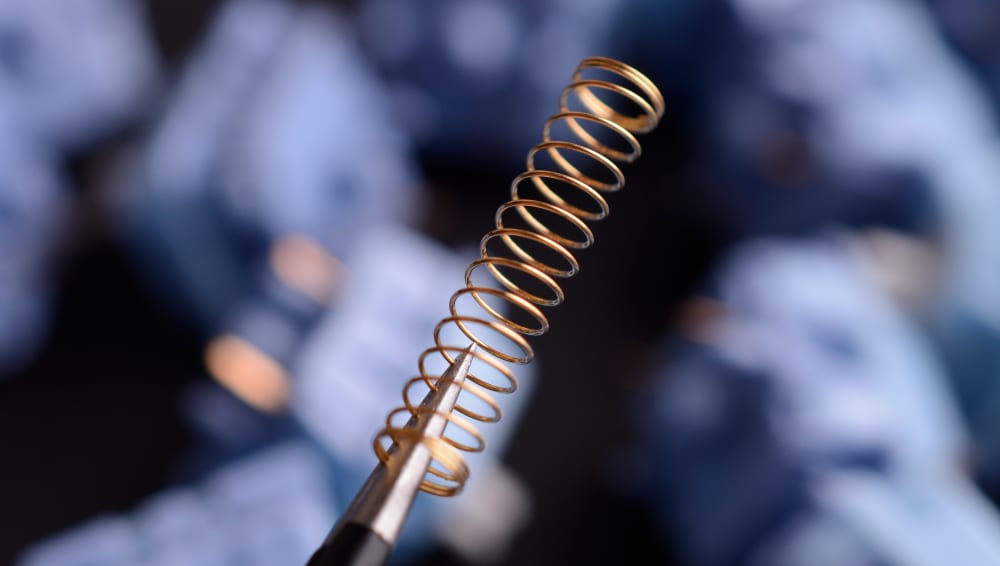Keybonbon
Jun 23, 2022
•6 minutes
How to Use Penguin Tactile V2 Switches
An in-depth look at what penguin tactile switches are, how to use them, and how to modify them


Kinetic Labs Penguin Tactile Switches on switch opener
Penguin tactile switches are known as ergonomic tactile switches (also called ergo clear-style switches) because of two special properties:
- Short stem pole
- Unlike most other switches, the stem pole on the penguin switches are short, meaning the distance required to completely press the switch is greater than normal. That's not to say that the actuation distance is long—only the bottom-out distance, so you don't have to worry about your switch actuations being slow.
- 63.5g long spring
- In the V2 version of penguin switches, a long spring was introduced to further soften the switch press. A long spring ultimately means the switch will have a more forceful upstroke on the way up.
These properties make penguins ergonomic because they soften the bottom-out. Bottoming out can be a painful experience for some when used typing extended periods of time as the harshness of hitting the switch stem with the bottom housing exerts upward force against your fingers. In fact, if you are mindful of pressing your penguin switches lightly, it's completely possible to type on them without bottoming out at all!
Fun fact: the name "ergo clear" stems from the old convention of spring swapping a Cherry MX Clear switch (which by default has a very heavy spring) with a lighter spring. Like penguin switches, MX Clear switches also have short stems.


Penguin Tactile Switches Parts
Should I choose lubed or un-lubed?
You may have noticed we offer penguin switches in both lubed and un-lubed forms. You can use the lubed penguins in their stock form without adding your own layer of lube (although adding your own layer is totally fine!), but we strongly recommend you lube the un-lubed version.
Contrary to conventional wisdom for lubing tactile switches, we encourage you to lube all sides of your penguin switches, including the legs. The ultimate goal of penguin switches is to provide an ergonomic, comfortable typing experience, and by default the tactility can be a bit sharp, so adding a light layer of lubricant over the stem legs will transform the sharp bump into a smooth, round bump.


Penguin Tactile Switch Stem
In addition to lubing all sides of the stem, you can lube the bottom housing, top housing, and spring to further dampen any rattly noise that you might experience. If you're feeling brave, you can also add lubricant to certain parts of the metal leaf if you experience ticking noises, but be careful not to lube over the contact points which are what cause the switch to register.
Also optional: you can add switch films (such as Kelowna Switch Films) to your penguins to slightly alter the sound profile and reduce any housing wobble. And if the PCB you are using only supports 3-pin switches, you can use a nail clipper to clip off the extra 2 plastic pins in your penguin tactile switch to make them compatible.
Why do you include heavy long springs with each order?
We include a handful of heavy springs with each order so that you can spring-swap the springs you'll use on heavy keys, such as the modifiers and space bars. This is an optional step, but will further soften the bottom-out on these longer keys, which are heavier and therefore bottom-out more easily when compared to keys using heavier springs. But don't worry if this sounds like a hassle—it's an optional step and not required to use your penguin tactile switches.


Penguin Tactile Switch Long Spring
If you want even greater upstroke force on your spacebars and modifiers, take a look at our selection of Symmetric Long Springs, which can get as heavy as 150g! For the majority of people, the included springs will be the perfect weight.
Alright, enough technical talk—let's hear some sound tests!
Sound test by xinxinwong
Sound test by KlicCat
Sound test by Simulator Tech
What do you think of penguin tactile switches? Let us know!